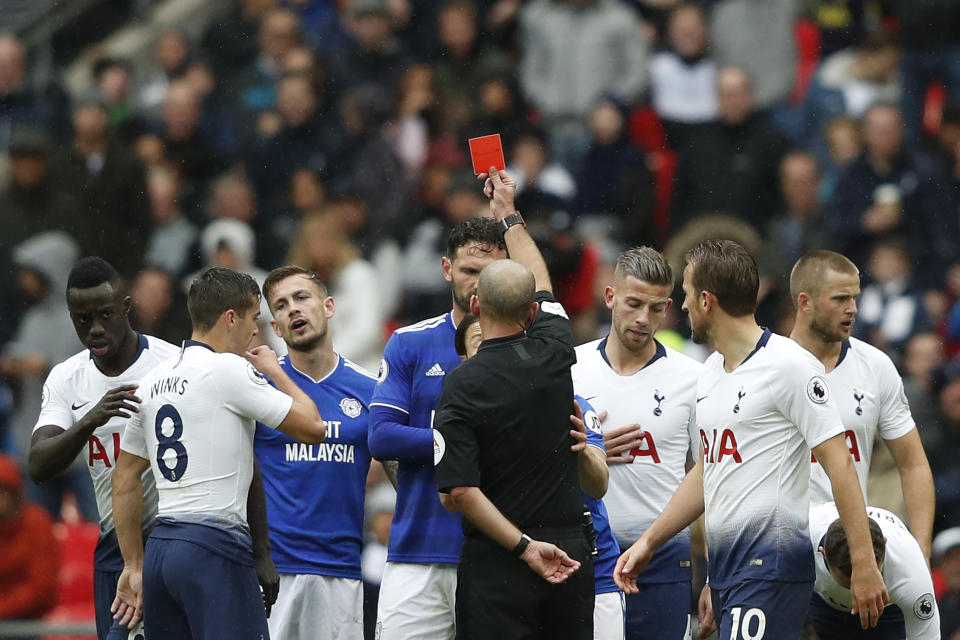FA brings in sin-bins for dissent across amateur and youth football

Sin-bins will be introduced for dissent in grassroots and youth football from the start of the new season, the Football Association has announced.
The rule will apply to all leagues up to step five in the National League System and tier three in women’s football – everything below the Bostik and Evo-Stik leagues in the men’s football, and below the Championship in the women’s game.
Players who show dissent to an official in adult football will be shown a yellow card and sent to the sin-bin for 10 minutes. For matches of shorter duration, they will spend eight minutes off the pitch.
In a statement, FA chief executive Mark Bullingham said: “The introduction of sin-bins is a positive step for grassroots football. They allow referees to address incidents of dissent quickly and effectively.
“Dissent is a key part of the game that needs to be tackled, and our pilot phase has proved that sin-bins work well. The trial showed a huge impact on behaviour that we want to roll out to the whole game and make it more enjoyable for everyone.”
The FA started piloting sin-bins two seasons ago and then extended the trial to 31 leagues last season. The results of the trial period showed a 38 per cent reduction in dissent, while the vast majority of players, coaches, managers and referees backed the idea.
Sin-bins will be indicated by the referee showing a yellow card and pointing to the touchline. This will result in a temporary dismissal during which time the player is not allowed to be substituted or involved in the game.
Unlike cautions, which will continue to be issued for unsporting behaviour and other offences, players will not have to pay the £10 administration fee for a single visit to the sin-bin but two temporary dismissals in one game will result in exclusion from the match.
If a player receives a yellow card for a foul as well as spending one period in the sin-bin for dissent, they will be allowed to play on.
Dissent is defined as shouting at the referee, questioning their ability, sarcastic clapping and so on, but foul and abusive language will still be a red-card offence.
County FAs around the country have already started training courses for club officials and players will receive a guide, while the FA has launched an online portal to explain the changes, too.
Featured from our writers

 Yahoo Sport
Yahoo Sport 





































